Grade 6 class's 'equity backpack' project expands to 70 schools in B.C. and Alberta
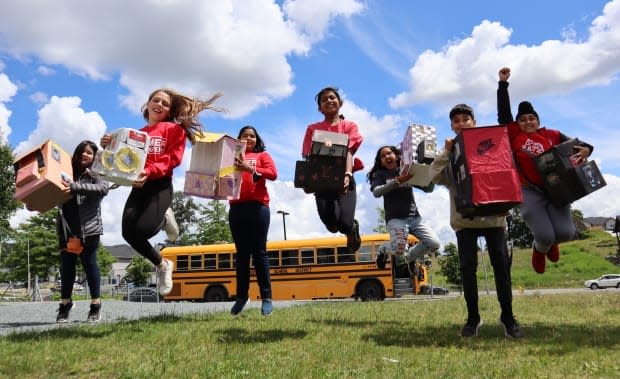
What started out as one Abbotsford Grade 6 class's project to tackle racism has expanded into classrooms in over 70 schools in B.C., including one in Alberta.
At the start of the school year, social studies teacher Nerlap Sidhu came up with an idea to have her students create personalized "equity backpacks."
The backpacks were made as part of a class craft project using cardboard and other materials, with the intention of keeping work related to equity, inclusion and racism all in one place.
With each lesson, they have been filled with new content including artwork, photos, journal entries and other classwork.
"It's really important to engage them at an early age because it's such an important conversation," said Sidhu, who recently earned a master's degree in equity studies in education.
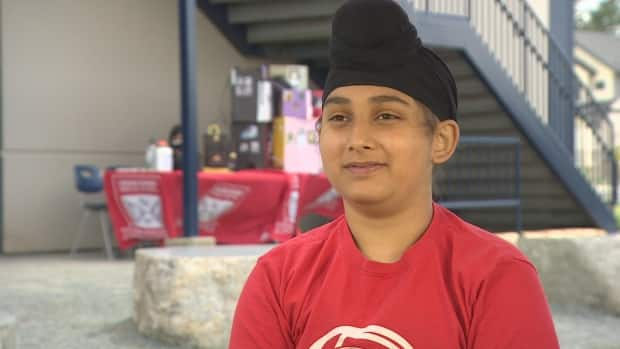
"I feel really glad we're learning about this," said student Balkaran Basran. The 11-year-old has been teased for his long hair and the patka he wears on his head.
"This is part of my identity, my history, my parents, my grandparents and we're trying to build bridges across cultures and not walls," he said proudly.
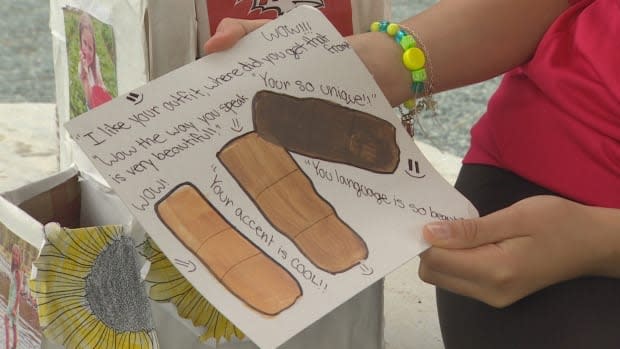
For one assignment, students gained tools to combat racial stereotypes by drawing Band-Aids of different skin tones and listing negative words on one side of the artwork.
On the other side, they listed positive words to counter them.
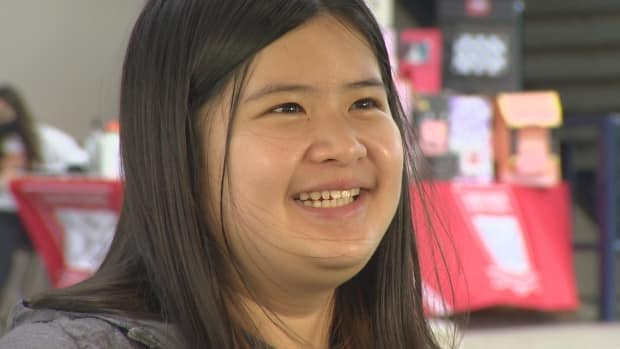
Ellie Dinh, 11, has since learned about her father's experience as an immigrant from Vietnam.
"He was the only one of his culture in school," explained Dinh." He thought there was something wrong with him. It made me feel really heartbroken because there's nothing wrong with the culture and you should celebrate it."
Sidhu says she believes these conversations allow students to reflect on their own painful experiences and give them the tools to respond appropriately if they are targets or witnesses to racism in the future.
Overwhelming interest from other teachers, principals
Sidhu says after CBC ran a story about their project in January, she and the school's principal Ian Levings were flooded with interest from other school staff.
She heard from educators across B.C. who wanted to address these important themes related to anti-racism in class but didn't know how.
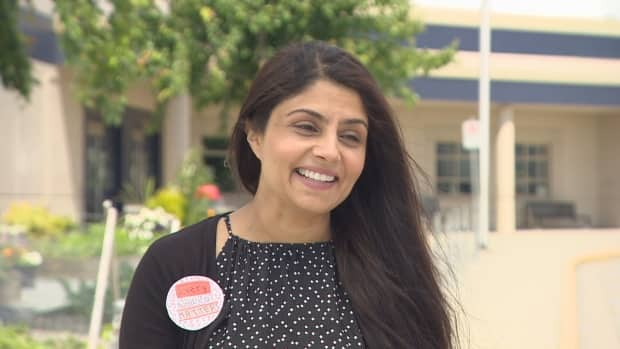
"It's a topic that sometimes makes people uncomfortable and educators might be nervous or unsure of a good entry," explained Sidhu.
The teacher shared her lesson plans and laid out what the class included in the backpacks.
Sidhu and Levings have since hosted virtual workshops for over 100 teachers to discuss the project and the lesson plans.
"We don't live in a vacuum. The students, they watch the news," said Levings. "They know what's going on and when they come to us and their parents with questions, concerns or worries, we need to have the knowledge and the background in order to help our students."
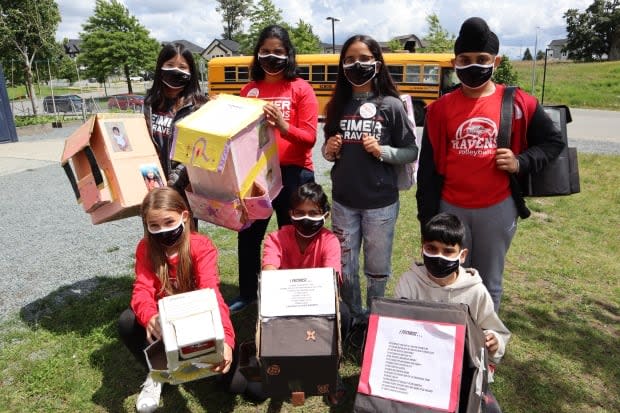
They've also had organizations, including the local Abbotsford Girl Guides, reach out for information about the backpack.
What's next for the backpack project?
With the school year ending, the class is working to have even more eyes on their work this summer by reaching out to museums across the country.
"Hopefully, we'll get to share [it] as an exhibit, demonstrating the students' learning, maybe inspiring other students and teachers," said Sidhu.
By September, staff and students are optimistic there could be 'equity backpacks' in classrooms coast to coast.

